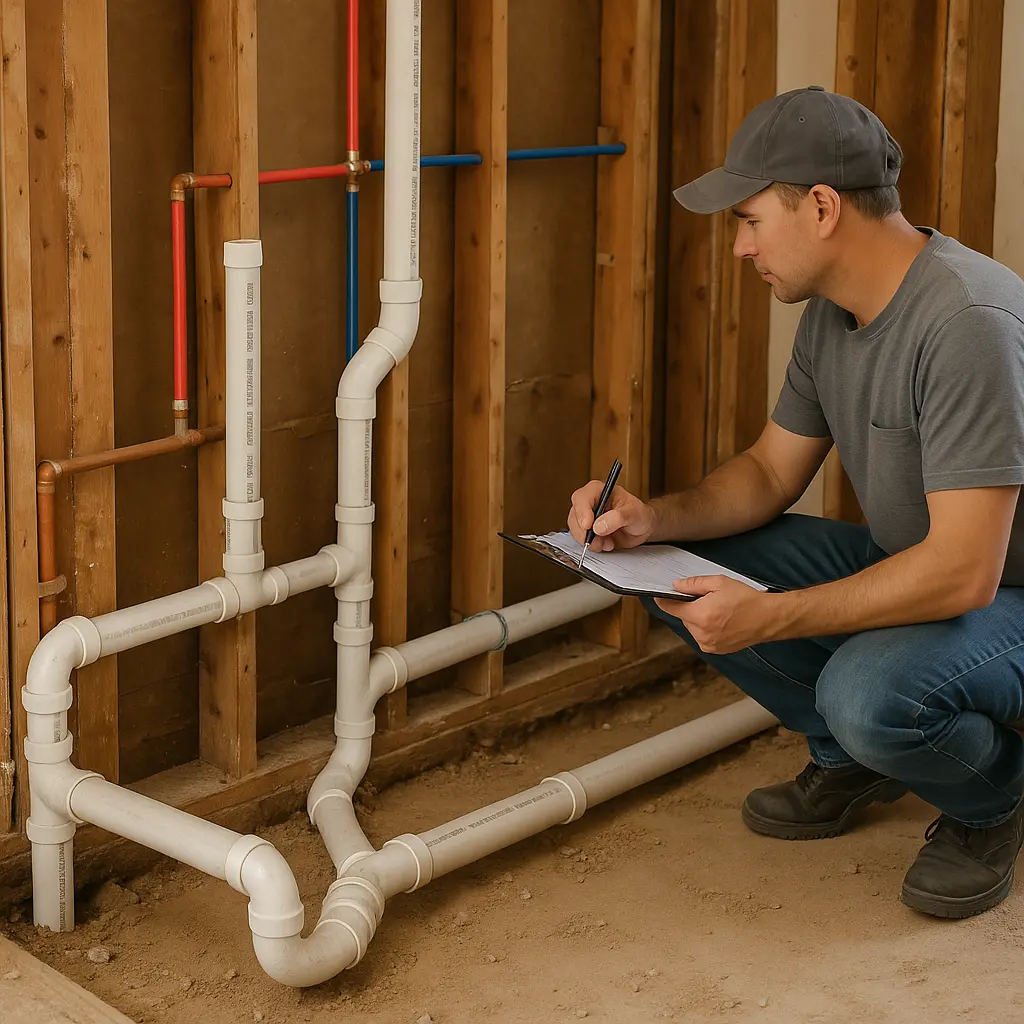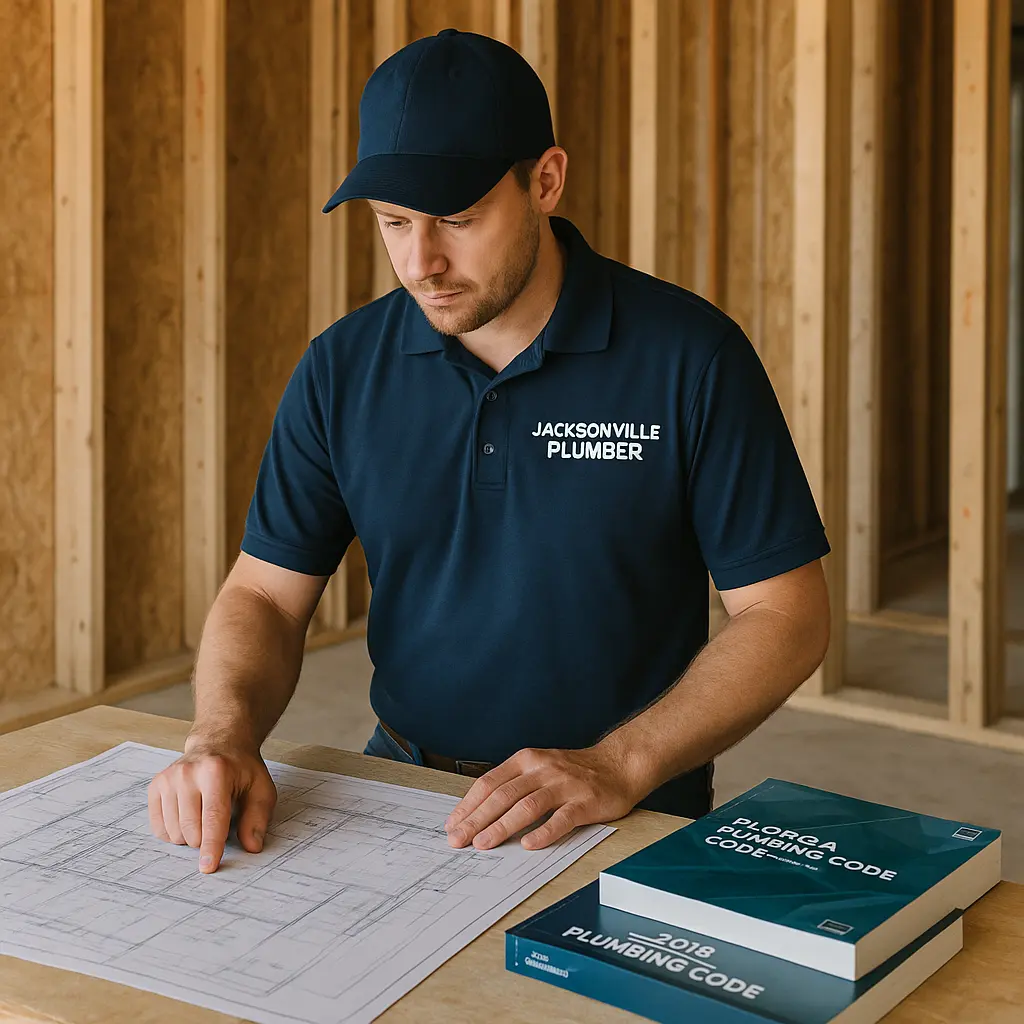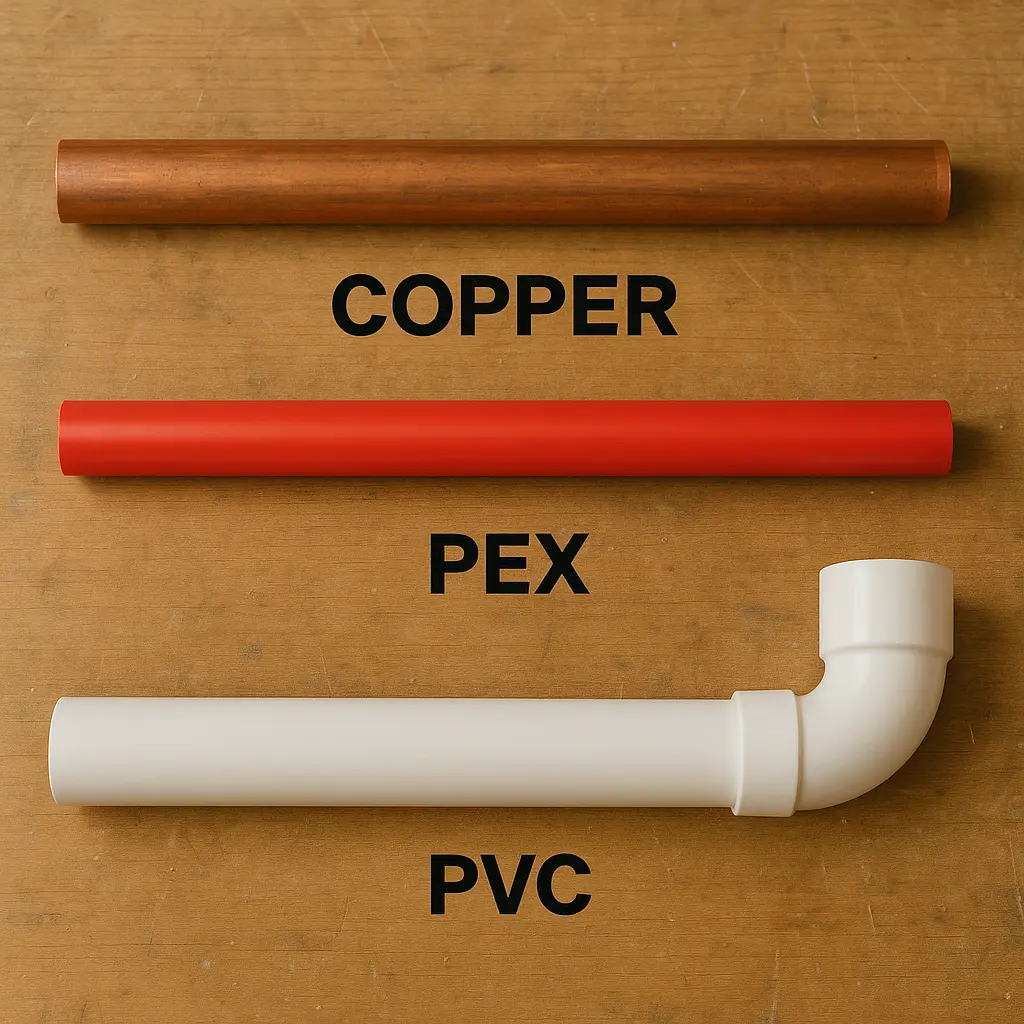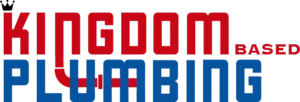Embarking on a home renovation in Jacksonville can be exciting, but overlooking your plumbing can turn your dream project into a nightmare. From kitchen remodels to bathroom makeovers, plumbing is the unseen hero that ensures functionality, safety, and comfort. This comprehensive guide dives deep into everything you need to know about plumbing during renovations in Jacksonville, making sure your project is successful, stress-free, and cost-effective.
1. Understanding the Importance of Plumbing in Renovations
Before you knock down walls, install that stunning farmhouse sink, or choose marble tiles for your dream kitchen, there’s one critical element that deserves your full attention: your plumbing system. While often hidden behind drywall or buried beneath your foundation, your home’s plumbing plays a central role in the success—and longevity—of any renovation project.
Plumbing isn’t just about pipes, drains, and faucets. It’s the lifeblood of your home, silently delivering fresh water and removing waste around the clock. During a renovation, whether it’s a full-scale kitchen remodel, a luxurious bathroom upgrade, or adding a laundry room, overlooking your plumbing could be a costly mistake. The last thing any homeowner wants is to discover a leaking pipe behind a brand-new backsplash or realize the water pressure isn’t strong enough to power that sleek rain shower you just installed.
In cities like Jacksonville, many homes—especially those built before the 1980s—still rely on aging or outdated plumbing systems. These older systems are more vulnerable to corrosion, mineral buildup, and leaks. If your renovation involves opening walls or digging into foundations, it’s the ideal time to inspect and assess the state of your plumbing. Replacing aging galvanized pipes with more durable materials like PEX or copper can dramatically improve water quality and pressure while preventing future headaches.
A professional plumbing evaluation during your renovation planning phase can reveal a range of hidden issues: improperly vented drains, undersized pipes, clogs deep within the sewer line, or inefficient water heaters that can’t keep up with modern demands. Identifying and addressing these problems upfront allows you to integrate upgrades into your renovation schedule—saving you time, money, and the heartbreak of having to undo newly completed work.
Moreover, plumbing upgrades can significantly increase your home’s value. Energy-efficient fixtures, tankless water heaters, and eco-conscious low-flow toilets not only lower monthly utility bills but also appeal to environmentally conscious buyers. In today’s housing market, modern, efficient plumbing is more than a hidden bonus—it’s a selling point.

In short, a beautiful renovation starts with a solid foundation. Prioritize your plumbing as much as your design aesthetic. You’ll thank yourself later—especially when everything works flawlessly and your water bill doesn’t skyrocket.
2. Common Plumbing Issues During Renovations
Home renovations can breathe new life into a space—but if you’re not careful, they can also stir up hidden plumbing problems that were better left in the past. In Jacksonville, where humidity levels are high and older homes abound, plumbing challenges are not just likely—they’re expected. Whether you’re remodeling a cozy bungalow in Riverside or updating a condo near the beach, understanding these common plumbing issues before you start swinging a sledgehammer can save you thousands in costly repairs and do-overs.
Corrosion and Rust in Old Pipes
One of the most frequent (and frustrating) issues encountered during renovations is corroded plumbing. Many of Jacksonville’s older homes still rely on galvanized steel or cast iron pipes—materials that deteriorate over time, especially in Florida’s warm, moisture-heavy air. Renovation projects often involve tearing into walls or exposing piping under floors, and that’s when the corrosion becomes obvious. Flakes of rust, restricted water flow, or brownish water are all signs that your pipes need an upgrade. Replacing outdated lines with corrosion-resistant options like PEX or copper not only improves water quality but also brings your plumbing up to modern code.
Pipe Relocation Challenges
Love the idea of moving your sink to the kitchen island or shifting the shower for a better bathroom layout? Be prepared to rework your plumbing layout too. Relocating pipes is often more complex than it looks, especially if your renovation involves concrete slab foundations—a common feature in Florida homes. Precise measurements and route planning are essential to avoid cutting into load-bearing structures or accidentally damaging other utilities. A licensed plumber can map out an efficient new layout that aligns with your design while keeping costs and complications to a minimum.
Drainage and Venting Mistakes
Proper drainage is about more than just gravity—it also requires the correct slope, pipe sizing, and venting. Poor planning can lead to slow drains, gurgling toilets, or even wastewater backing up into your newly renovated space. Florida’s strict plumbing codes mandate proper venting for all fixtures, especially in high-humidity regions like Jacksonville. Neglecting this step can result in trapped sewer gases, unpleasant odors, and unsafe living conditions.
Water Pressure Problems
Upgrading to spa-like showerheads or modern kitchen faucets? You may discover that your current system lacks the pressure needed to deliver peak performance. Often, low water pressure traces back to old pipes with mineral buildup or undersized supply lines. During a renovation, it’s the perfect time to identify and correct these issues—whether by replacing pipes, adjusting pressure regulators, or even upgrading your main water supply line.
Tackling these common plumbing issues during your renovation may not be the most glamorous part of the project—but it’s one of the smartest. A little foresight now prevents big problems later and ensures that your new space isn’t just beautiful, but fully functional.
3. Planning Your Plumbing Renovation
No matter how beautiful your renovation vision may be—whether it’s a spa-inspired bathroom, a gourmet kitchen, or a new laundry space—success hinges on what’s behind the walls. That’s where thoughtful plumbing planning comes into play. In Jacksonville, where older infrastructure, humid conditions, and regional codes come together in complex ways, proper plumbing renovation planning isn’t just helpful—it’s essential.

Here’s how to lay the groundwork for a seamless plumbing upgrade:
1. Start with a Professional Inspection and Assessment
Before you sketch a single layout or browse high-end fixtures, get a licensed plumbing professional to perform a full-system inspection. In Jacksonville, many homes—especially those built before the 1980s—have legacy issues like corroded pipes, sub-par drainage, and outdated water heaters. An expert inspection can uncover hidden leaks, inadequate venting, failing shut-off valves, and more. This step informs your design decisions and helps prioritize what needs replacement versus what can stay.
2. Budget for Plumbing Upgrades Wisely
Plumbing is often underestimated in renovation budgets. But skimping here can lead to regret—especially if you uncover problems mid-project. Allocate enough funds not only for visible fixtures but also for behind-the-scenes improvements like replacing old supply lines or upgrading the water heater. Think of it this way: it’s far more affordable to fix plumbing problems now, while the walls are open, than after you’ve installed tile, cabinetry, or flooring. Planning with contingency funds (around 10–15% of your total plumbing budget) can help you handle any surprises without derailing your entire renovation.
3. Hire a Local Plumbing Expert Familiar with Jacksonville Homes
Your renovation team should include a licensed plumber with experience in Jacksonville’s building codes and climate-specific challenges. Local plumbers understand things like high groundwater levels, slab foundation constraints, and the best materials to resist Florida humidity. They’re also familiar with the quirks of local neighborhoods—from older homes in Avondale to coastal properties near Ponte Vedra Beach—ensuring your system will work efficiently for years to come.
4. Secure the Proper Permits and Stay Code-Compliant
Plumbing renovations often require permits—especially when relocating fixtures, upgrading water heaters, or replacing sewer lines. Working with a professional ensures all necessary paperwork is filed correctly with the City of Jacksonville. Skipping this step may seem like a shortcut, but it can lead to inspection failures, fines, and even the requirement to undo completed work. Always confirm that your renovation plans meet local plumbing codes and safety regulations.
Planning your plumbing renovation properly isn’t just about avoiding trouble—it’s about building confidence. With expert insight, smart budgeting, and local code compliance, you’ll ensure that your renovation is both beautiful and built to last.
4. Choosing the Right Plumbing Materials
When it comes to upgrading your faucet, most homeowners focus on style, finish, or brand—but beneath the surface, one of the most critical decisions lies in the plumbing materials that connect everything together. Whether you’re tackling a full kitchen remodel or just replacing a single faucet, using the right materials can make the difference between a hassle-free experience and long-term plumbing headaches.

In Jacksonville and surrounding Northeast Florida areas, where heat, humidity, and mineral-heavy water are common, the choice of pipe and connector material is not just a technicality—it’s a long-term investment. Here’s a closer look at the top plumbing materials recommended by professionals in the region:
Copper Pipes
Copper has long been the gold standard in plumbing for good reason. It’s incredibly durable, heat-resistant, and naturally resistant to bacteria and corrosion. Copper piping is especially well-suited for potable (drinking) water lines. Its rigidity allows for clean, professional-looking installations and fewer worries about leaks over time. In Jacksonville, where water quality can vary, copper’s resistance to scaling from hard water gives it a clear advantage—though it does come at a higher cost.
PEX (Cross-Linked Polyethylene) Pipes
PEX piping is a modern favorite for homeowners and plumbers alike. It’s flexible, affordable, and easier to install than copper, especially in tight spaces. It can curve around obstacles, which means fewer fittings and joints—translating to fewer potential leak points. PEX also performs exceptionally well in both hot and cold temperatures, making it ideal for bathroom and kitchen upgrades. In coastal Florida, where salt and humidity can challenge metal pipes, PEX offers a rust-free alternative that stands the test of time.
PVC (Polyvinyl Chloride) Pipes
When it comes to drainage and vent systems, PVC reigns supreme. These white, rigid plastic pipes are lightweight, easy to work with, and highly resistant to chemical damage. Their affordability makes them an excellent choice for waste lines, and they won’t corrode or rot in Jacksonville’s humid climate. However, they’re not suitable for hot water supply lines, so their use is best limited to non-pressurized plumbing.
5. Plumbing Upgrades That Add Value
Home renovations are often driven by a desire for aesthetic upgrades or improved functionality—but savvy homeowners know that the smartest renovations are those that also boost property value. Plumbing upgrades are often overlooked, yet they offer a hidden goldmine of long-term benefits—especially in markets like Jacksonville, where heat, humidity, and hard water all take a toll on plumbing systems over time.
If you’re already investing in a faucet replacement, it’s worth exploring these strategic plumbing upgrades that can increase your home’s resale value, improve daily comfort, and reduce long-term costs. Here are three of the most impactful plumbing improvements that are winning over buyers and inspectors alike.
1. Tankless Water Heaters
Tankless water heaters, also known as on-demand systems, are revolutionizing how Jacksonville homeowners access hot water. Unlike traditional tank units that constantly heat a reservoir of water, tankless models heat water only when needed. This results in:
- Instant hot water, even during back-to-back showers
- Lower utility bills, thanks to improved energy efficiency
- A compact footprint, freeing up space in laundry rooms or garages
- Longer lifespan, often 20+ years with proper maintenance
Buyers are drawn to homes with tankless systems because they signal modern infrastructure and lower future energy costs. In Jacksonville, where hot water demand runs year-round due to warm climate and beach-going lifestyles, this upgrade is particularly appreciated.
2. Whole-Home Water Softening Systems
Hard water is a common issue in Northeast Florida, and Jacksonville is no exception. Mineral-rich water can shorten the lifespan of water heaters, stain plumbing fixtures, and make detergents less effective. A whole-home water softening system addresses these problems by filtering out excess calcium and magnesium, offering:
- Protection for plumbing pipes and faucets
- Softer laundry and smoother skin
- Better taste and odor of tap water
- Reduced limescale buildup in appliances
For potential buyers, a water softener isn’t just a comfort feature—it’s a sign that the home has been well-maintained and thoughtfully upgraded for the local environment.
3. High-Efficiency Plumbing Fixtures
Modern plumbing fixtures don’t just look good—they save money and water. Upgrading to low-flow toilets, faucets, and showerheads can reduce water usage by up to 30%, which is a major selling point for both eco-conscious buyers and cost-conscious families. These fixtures are easy to install during a faucet upgrade and offer:
- Environmental appeal, contributing to LEED or Energy Star home criteria
- Lower monthly water bills
- Compliance with current building codes and regulations
In a real estate market that increasingly favors sustainability, these water-efficient upgrades stand out in listings and home inspections.
Why It Matters for Jacksonville Homes
Jacksonville’s coastal location means plumbing systems are under constant stress from salt air, humidity, and hard water. Investing in resilient and efficient upgrades doesn’t just add resale value—it extends the life of your plumbing system, increases your comfort, and positions your home as modern and move-in ready. Whether you’re planning to sell soon or just want to future-proof your home, these upgrades deliver immediate and long-term returns.
6. Navigating Jacksonville’s Plumbing Permits and Codes
When upgrading your faucet or undertaking any type of plumbing renovation in Jacksonville, it’s not as simple as picking a new fixture and calling it a day. Behind every shiny faucet and efficient water heater is a maze of local plumbing codes, regulations, and permitting requirements that ensure the safety, durability, and legality of your home improvements.
Failing to comply with these rules isn’t just a red-tape headache—it can lead to inspection failures, fines, costly rework, and even delays in selling your home. Whether you’re a DIY enthusiast or working with a contractor, understanding Jacksonville’s specific plumbing requirements is key to a successful and stress-free renovation.
Why Permits Matter
In Jacksonville, plumbing permits are required for most plumbing jobs beyond minor repairs. This includes:
- Faucet replacements if pipe modifications are involved
- Water heater installations (tank or tankless)
- Pipe rerouting
- Drainage system changes
- Sewer line connections
Permits exist to protect homeowners and ensure work is up to current safety and sanitation standards. They also provide documentation for insurance and resale purposes. If you skip the permitting process, even for a small job, it can backfire during inspections or appraisals.
Common Plumbing Code Considerations in Jacksonville
The Florida Building Code – Plumbing (FBCP) and local amendments govern residential plumbing in Duval County. Some important areas of concern include:
- Proper Venting and Drainage
Every fixture must be adequately vented to avoid sewer gas leaks and maintain drainage efficiency. Improper venting is one of the most common code violations and can affect everything from your sink to your shower. - Water Heater Installations
Jacksonville code requires specific safety features like pressure relief valves, seismic strapping (in some cases), and correct venting for gas units. Tankless systems must be installed per manufacturer and local specifications. - Fixture Requirements
All new fixtures must meet Florida’s water efficiency standards, which include low-flow performance thresholds. Older fixtures that don’t meet these criteria may need to be upgraded during permitted renovations. - Sewer and Septic Connections
Homes connected to the municipal sewer system must use code-compliant backflow prevention and properly sized pipes. In some areas of Jacksonville, septic systems require additional permitting and inspection from the Department of Health.
Hire Local Experts to Simplify the Process
The easiest way to stay on the right side of the law? Work with licensed plumbers who know Jacksonville’s permitting system inside and out. They can pull the necessary permits, schedule inspections, and ensure all work is done to code—saving you time, money, and potential legal hassles.
When you upgrade your faucet, especially as part of a larger kitchen or bathroom remodel, involving a knowledgeable professional ensures that every detail—from venting to fixture choice—is handled correctly and legally.
7. Preventing Future Plumbing Problems
Effective plumbing renovations should proactively prevent future issues. Steps to ensure lasting performance include:
- Insulating pipes to avoid freezing (rare but possible in colder months)
- Properly sealing connections to prevent leaks
- Installing easily accessible shut-off valves for emergencies
8. Why Hire Professional Jacksonville Plumbers
DIY may be tempting, but professional plumbing services are indispensable, especially for major renovations. Professional plumbers:
- Guarantee compliance with local codes
- Provide warranty coverage on labor and parts
- Identify hidden issues that might escape DIY inspections
Conclusion and Actionable Insights
A thoughtful, well-executed plumbing renovation not only safeguards your home against future issues but also enhances comfort, efficiency, and property value. By understanding the role of plumbing, planning meticulously, selecting appropriate materials, and employing local experts, Jacksonville homeowners can confidently transform their spaces without hidden surprises.
Ensure you engage trusted local professionals like Kingdom Based Plumbing to guide your renovation journey. Our expertise in Jacksonville’s unique plumbing challenges ensures your home renovation is seamless and successful.
Ready to Start Your Renovation?
Contact Kingdom Based Plumbing today to schedule your consultation and plumbing inspection—your first step toward a flawless renovation project in Jacksonville.



